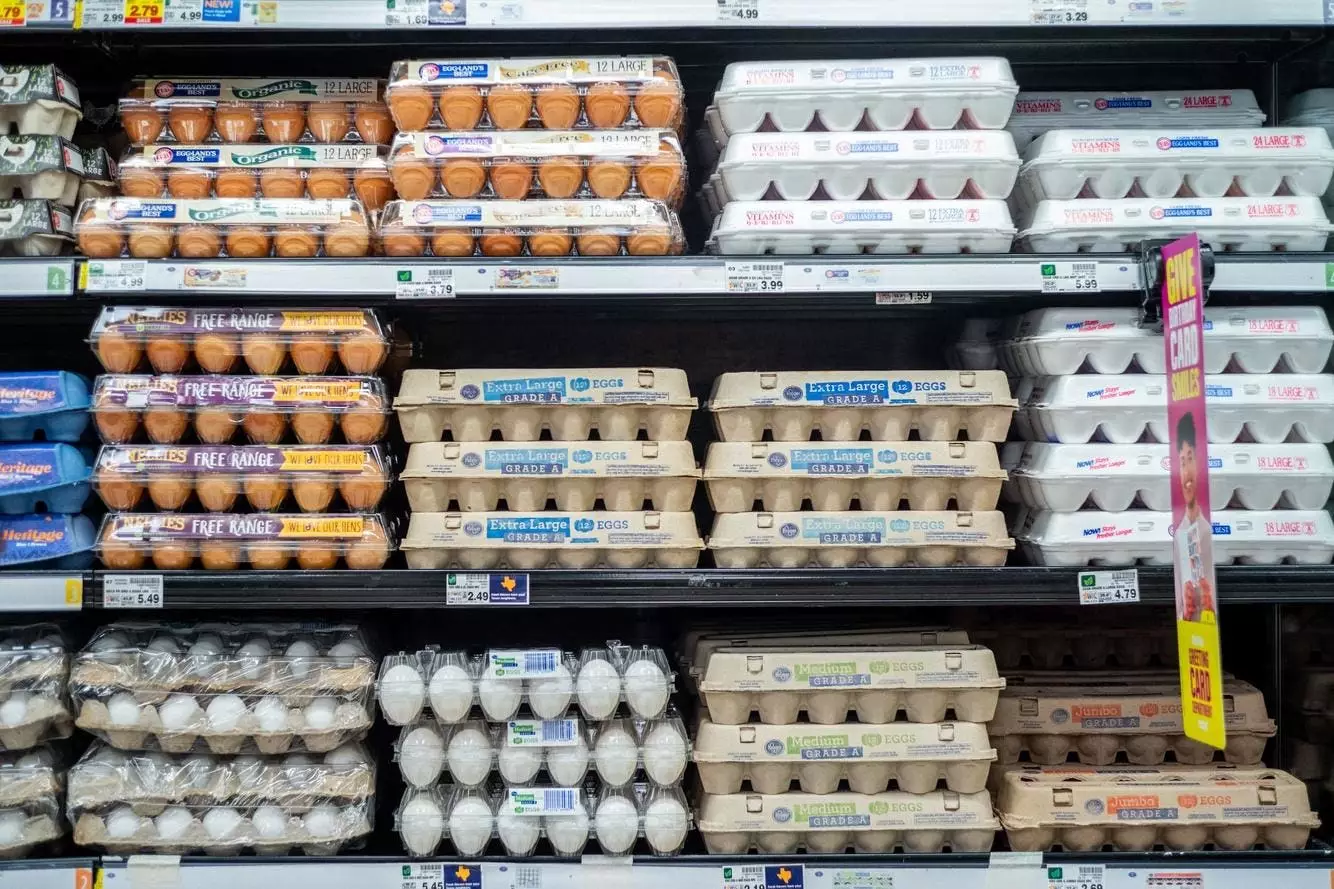Eggs have long occupied a cherished role in the American breakfast landscape, recognized both for their versatility in meal preparation and their affordability. However, as we approach 2025, a confluence of economic pressures—including inflation, disrupted supply chains, and evolving consumer preferences—has altered the way Americans view their beloved eggs. The staggering increase of 53% in egg prices year-over-year, as reported by the Consumer Price Index (CPI), signals that this staple is no longer an untouchable budget item. This article delves into the multifaceted changes stemming from this price spike, illuminating not merely the implications for groceries but also the broader cultural transformations underway.
The immediate consequences of rising egg prices are palpable in grocery aisles. The soaring costs have prompted a reevaluation of purchasing habits among consumers. Rather than accepting higher prices without complaint, many are strategically adjusting their shopping behaviors. The shift includes opting for store brands, buying in bulk, or, in some cases, eschewing eggs altogether in favor of alternative breakfast items. Foods such as oatmeal, yogurt, and plant-based substitutes are increasingly taking the place of eggs, reflecting an adaptive consumer culture that prioritizes cost-effectiveness.
It’s not just about what consumers are buying; it’s also about how the scarcity of eggs is reshaping preferences. A notable statistic reveals that 55% of egg buyers reported local grocery stores running out of stock within the past month. This shortage has driven consumers to rethink their breakfast choices, leading to an emphasis on readily available ingredients. As patrons pivot from traditional staples like the classic eggs and bacon breakfast, the landscape of quick morning meals evolves, showing how economic pressures can force entire industries, such as breakfast foods, to adapt.
The New Values of Egg Consumption
With the backdrop of escalating costs, eggs have transformed from an affordable necessity into a premium product for some consumers. This shift is notable among younger generations, particularly Gen Z and Millennials, who are increasingly willing to pay a premium for quality eggs, such as organic or free-range options. The changing dynamics highlight a critical distinction among consumers: while many are scaling back their purchases, a growing cohort perceives higher-quality eggs as worth the expense.
Furthermore, demographic studies indicate that Hispanic and urban consumers show a pronounced willingness to spend over $5 per dozen. In contrast, shoppers at discount retailers like Aldi tend to set a lower price ceiling of around $3.83, and those at Albertsons can justify spending up to $5.21. Through these distinctions, the issue of access and affordability emerges, underscoring that values play a significant role in the willingness to invest in premium products.
The evolution of egg consumption extends beyond mere financial considerations; it reflects a deeper cultural shift in how Americans approach food. Historically, items like beef, butter, and bread have transitioned from accessible staples into premium offerings as price increases and reduced mass-market options have reshaped consumer perceptions. If egg prices continue their upward trajectory, we may further witness the escalation of eggs into the luxury category, complicating their traditional role in the American diet.
This change represents a broader trend where consumers are increasingly deliberate about the origins and ethical implications of their food choices. When standard options are unavailable, elevating one’s selection by opting for higher-tier alternatives becomes a plausible response. The implications of this shift reverberate throughout grocery stores and kitchens, pushing consumers to experiment with egg-free recipes and explore alternative protein sources.
As we move closer to 2025, it is evident that the role of eggs in American households is undergoing profound transformation. Inflationary pressures, shortages, and enhanced consumer values regarding food quality converge to redefine what was once considered a kitchen staple. Whether consumers adopt a more selective purchasing strategy, return to classic breakfast traditions, or explore innovative alternatives, one certainty remains: the future of eggs carries significant implications not only for individual households but also for the broader food marketplace. The landscape of breakfast is changing—what was once an essential item may soon find itself navigating uncharted territory, fundamentally altering how we buy, prepare, and consume eggs.


Leave a Reply